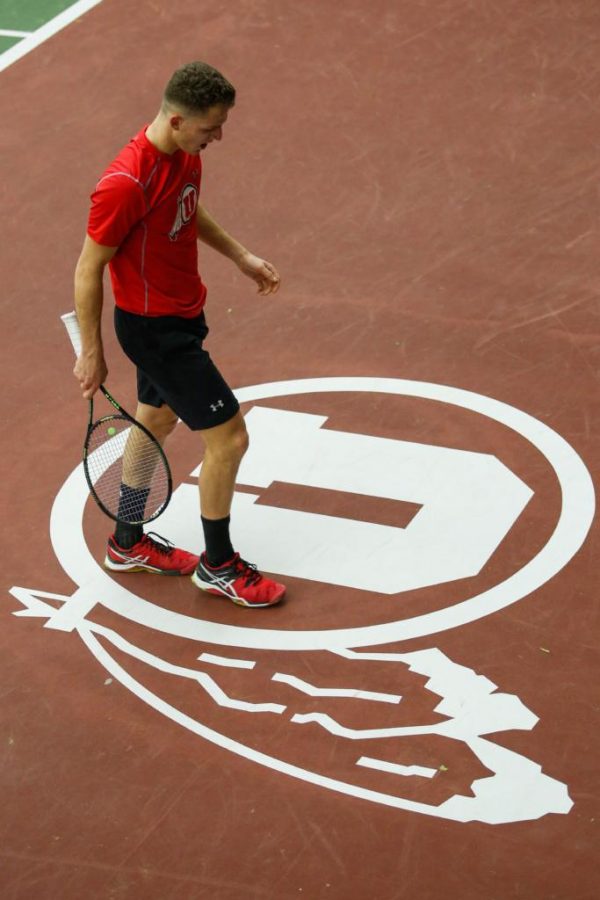Social media is a source for discovering entertainment, staying connected and building an image. For University of Utah athletes, this can also include promoting or even discrediting the sport they play. Rather than feeling the pressure under the cyber spotlight, the men’s tennis team uses it to its advantage.
The majority of the tennis players have four or more social networks. Santiago Sierra, a senior on the team, has noticed the rapid increase in online social networking throughout his college career. People are becoming more invested in sharing content and care more about what the public thinks. Sierra said regardless of the extra attention paid to athletes, they “try to be professional” and “take care of each other” when it comes to social media. He also feels the team’s small size makes it easier to control what gets posted online and they keep each other accountable.
“It’s okay to have a little bit of fun, but if you have a little bit too much fun and you do something stupid, then everybody knows about it,” Sierra said.
In the past, there have been instances of Utah athletes posting inappropriate behaviors on Snapchat and Instagram, but the men’s tennis team has had no such accusations. They take pride in maintaining clean and appropriate content because they know student-athletes are under more scrutiny than the average student. Because of this, coaches and staff within the athletics department meet with their players before the season starts to go over general suggestions and NCAA regulations of social media use. They convey the importance of building a positive image and stress how many people are paying attention to Utah Athletics. Every post by the team reflects on the individual and the university.
“Everything [you post] can obviously be seen, [and] that’s definitely something to think about and whether or not you want your account to be public or private,” said Dan Little, a junior on the team.
Even though athletes may have to think twice before posting, Little suggests social media can be more useful than it is limiting.
“[You can] let people know how you are doing and how the season is going. I think that’s pretty important,” Little said. “Overall it’s helpful because you can not only post about what you’re doing, but you can also see how well other teams are doing.”
For Little, social media is a positive way to promote his sport, the team’s performances and the university. Ute fans can stay updated with match schedules and results by following their favorite teams and players. Social media is also a way to see into an athlete’s personal life. The combination of content adds to the Utha Athletics brand.
If a student were to post a questionable picture or tweet that portrayed themselves and the university in negative light, Sierra believes viewers would take it more seriously if the student was also a collegiate athlete.
Even when student-athletes don’t realize it, the general public and Ute fans are always watching, but it does not create fear nor hinder social media use. Sierra and Little suggest using social media can be beneficial if athletes are responsible or avoid anything that may discredit their reputation and character.
@dg_maui



